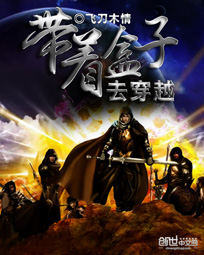the.lost.world-第48部分
按键盘上方向键 ← 或 → 可快速上下翻页,按键盘上的 Enter 键可回到本书目录页,按键盘上方向键 ↑ 可回到本页顶部!
————未阅读完?加入书签已便下次继续阅读!
〃
〃Right;〃 Arby said。
〃But there are problems with that idea;〃 Malcolm said。 〃First of all; there's a time problem。 A single bacterium … the earliest form of life has two thousand enzymes。 Scientists have estimated how long it would take to randomly assemble those enzymes from a primordial soup。 Estimates run from forty billion years to one hundred billion years。 But the earth is only four billion years old。 So; chance alone seems too slow。 Particularly since we know bacteria actually appeared only four hundred million years after the earth began。 Life appeared very fast … which is why some scientists have decided life on earth must be of extraterrestrial origin。 Although I think that's just evading the issue。〃
〃Okay。。。〃
〃Second; there's the coordination problem。 If you believe the current theory; then all the wonderful plexity of life is nothing but the accumulation of chance events … a bunch of genetic accidents strung together。 Yet when we look closely at animals; it appears as if many elements must have evolved simultaneously。 Take bats; which have echolocation…they navigate by sound。 To do that; many things must evolve。 Bats need a specialized apparatus to make sounds; they need specialized ears to hear echoes; they need specialized brains to interpret the sounds; and they need specialized bodies to dive and swoop and catch insects。 If all these things don't evolve simultaneously; there's no advantage。 And to imagine all these things happen purely by chance is like imagining that a tornado can hit a junkyard and assemble the Parts into a working 747 airplane。 It's very hard to believe。〃
〃Okay;〃 Thorne said。 〃I agree。〃
〃Next problem。 Evolution doesn't always act like a blind force should。 Certain environmental niches don't get filled。 Certain plants don't get eaten。 And certain animals don't evolve much。 Sharks haven't changed for a hundred and sixty million years。 Opossums haven't changed since dinosaurs became extinct; sixty…five million years ago。 The environments for these animals have changed dramatically; but the animals have remained almost the same。 Not exactly the same; but almost。 In other words; it appears they haven't responded to their environment。〃
〃Maybe they're still well adapted;〃 Arby said。
〃Maybe。 Or maybe there's something else going on that we don't understand。〃
〃 Like what?〃
〃Like other rules that influence the oute。〃
Thorne said; 〃Are you saying evolution is directed?〃
〃No;〃 Malcolm said。 〃That's Creationism and it's wrong。 Just plain wrong。 But I am saying that natural selection acting on genes is probably not the whole story。 It's too simple。 Other forces are also at work。 The hemoglobin molecule is a protein that is folded like a sandwich around a central iron atom that binds oxygen。 Hemoglobin expands and contracts when it takes on and gives up oxygen…like a tiny molecular lung。 Now; we know the sequence of amino acids that make up hemoglobin。 But we don't know how to fold it。 Fortunately; we don't need to know that; because if you make the molecule; it folds all by itself。 It organizes itself。 And it turns out; again and again; that living things seem to have a self…organizing quality。 Proteins fold。 Enzymes interact。 Cells arrange themselves to form organs and the organs arrange themselves to form a coherent individual。 Individuals organize themselves to make a population。 And populations organize themselves to make a coherent biosphere。 From plexity theory; we're starting to have a sense of how this self…organization may happen; and what it means。 And it implies a major change in how we view evolution。〃
〃But;〃 Arby said; 〃in the end; evolution still must be the result of the environment acting on genes。〃
〃I don't think it's enough; Arb;〃 Malcolm said。 〃I think more is involved … I think there has to be more; even to explain how our own species arose。〃
〃About three million years ago;〃 Malcolm said; 〃some African apes that had been living in trees came down to the ground。 There was nothing special about these apes。 Their brains were small and they weren't especially smart。 They didn't have claws or sharp teeth for weapons。 They weren't particularly strong; or fast。 They were certainly no match for a leopard。 But because they were short; they started standing upright on their hind legs; to see over the tall African grass。 That's how it began。 just some ordinary apes; looking out over the grass。
〃As time went on; the apes stood upright more and more of the time。 That left their hands free to do things。 Like all apes; they were tool…users。 Chimps; for example; use twigs to fish for termites。 That sort of thing。 As time went on; our ape ancestors developed more plex tools。 That stimulated their brains to grow in size and plexity。 It began a spiral: more plex tools provoked more plex brains which provoked more plex tools。 And our brains literally exploded; in evolutionary terms。 Our brains more than doubled in size in about a million years。 And that caused problems for us。〃
〃Like what?〃
〃Like getting born; for one thing。 Big brains can't pass through the birth canal … which means that both mother and child die in childbirth。 That's no good。 What's the evolutionary response? To make human infants born very early in development; when their brains are still small enough to pass through the pelvis。 It's the marsupial solution … most of the growth occurs outside the mother's body。 A human child's brain doubles during the first year of life。 That's a good solution to the problem of birth; but it creates other problems。 It means that human children will be helpless long after birth。 The infants of many mammals can walk minutes after they're born。 Others walk in a few days; or weeks。 But human infants can't walk for a full year。 They can't feed themselves for even longer。 So one price of big brains was that our ancestors had to evolve new; stable social organizations to permit long…term child care; lasting many years; These big…brained; totally helpless children changed society。 But that's not the most important consequence。〃
〃No?〃
〃No。 Being born in an immature state means that human infants have unformed brains。 They don't arrive with a lot of built…in; instinctive behavior。 Instinctively; a newborn infant can suck and grasp; but that's about all。 plex human behavior is not instinctive at all。 So human societies had to develop education to train the brains of their children。 To teach them how to act。 Every human society expends tremendous time and energy teaching its children the right way to behave。 You look at a simpler society; in the rain forest somewhere; and you find that every child is born into a network of adults responsible for helping to raise the child。 Not only parents; but aunts and uncles and grandparents and tribal elders。 Some teach the child to hunt or gather food or weave; some teach them about sex or war。 But the responsibilities are clearly defined; and if a child does not have; say; a mother's brother's sister to do a specific teaching job; the people get together and appoint a substitute。 Because raising children is; in a sense; the reason the society exists in the first place。 It's the most important thing that happens; and it's the culmination of all the tools and language and social structure that has evolved。 And eventually; a few million years later; we have kids using puters。
〃Now; if this picture makes sense; where does natural selection act? Does it act on the body; enlarging the brain? Does it act on the developmental sequence; pushing the kids out early? Does it act on social behavior; provoking cooperation and child…caring? Or does it act everywhere all at once … on bodies; on development; and on social behavior?〃
〃Everywhere at once;〃 Arby said。
〃I think so;〃 Malcolm said。 〃But there may also be parts of this story that happen automatically; the result of self…organization。 For example; infants of all species have a characteristic appearance。 Big eyes; big heads; small faces; uncoordinated movements。 That's true of kids and puppies and baby birds。 And it seems to provoke adults of all species to act tenderly toward them。 In a sense; you might say infant appearance seem





![[LOL]爱的双排封面](http://www.9wshu.net/cover/12/12832.jpg)